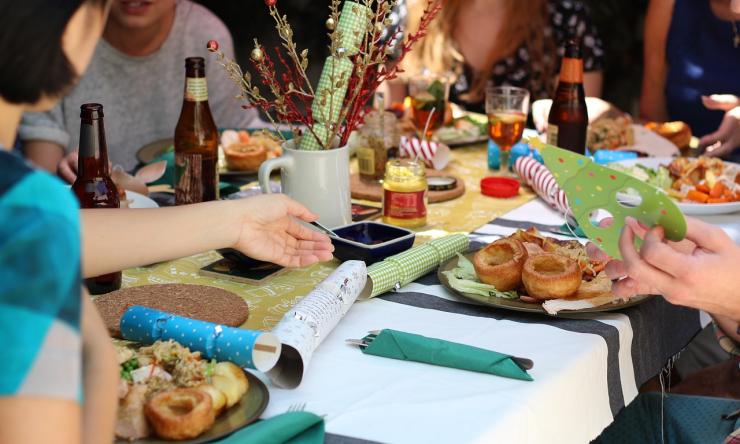Holiday eating on weight loss medications
The holidays are near, and so is the season of eating decadent meals – and sometimes, overeating. Overindulging on food is not recommended for those taking GLP-1 medications, which are weight loss treatments for patients who are obese, overweight or living with type 2 diabetes. A Baylor College of Medicine endocrinologist provides tips on how to enjoy holiday eating on GLP-1s without overconsumption.
GLP-1 medications increase your satiety and decrease the gastric motility that moves food through the digestive system, both of which result in the likelihood to eat less and lose weight. Consuming large portion sizes on these medications can make you sick and worsens the nausea that is associated with them, so eating smaller portion sizes and avoiding excess calories is crucial.
“You lose the benefit of weight loss if you do not watch your diet,” said Dr. Mandeep Bajaj, professor of medicine – endocrinology, diabetes and metabolism at Baylor. “In addition, if you are taking GLP-1 receptor agonists for treatment of diabetes, overindulging will worsen your diabetes control, and you will lose the benefit of the therapy.”
Those who take GLP-1s should not stop taking them during the holidays because excess calories are typically consumed, which will lead to regaining the weight already lost on the medication. Tips to stay on track with your medication this holiday season include:
- Consuming whole foods and a nutrient-dense diet made up of minimally processed food: eat vegetables, lean proteins, fiber and whole grains.
- Eating smaller portion sizes: more than half your plate should consist of lean meat and vegetables.
- Avoiding food that is fried in saturated oils.
- Avoiding foods rich in simple sugars, which tend to spike up blood glucose (blood sugar), such as sodas, candy and ice cream.
- Minimizing alcohol intake: alcohol has excess calories and can cause low blood sugar reaction if you have diabetes and also are on insulin.
- Keeping yourself hydrated: people not only eat less on GLP-1s but they tend to drink less fluids, leading to dehydration.
For those considering starting a GLP-1 medication, Bajaj does not recommend waiting until the new year so that they can indulge over the holidays. Waiting can lead to poor diabetes control and weight gain.
“The whole purpose of treatment is diabetes control and weight loss in patients who are obese or overweight. There is no reason to delay it until the holidays are over because that is the time when diabetes control worsens and you gain weight,” he said.
GLP-1 medications have changed people’s outlooks toward diets, leading them to understand that a combination of a healthy lifestyle and treatment can be helpful in diabetes control and weight loss.
“Patients who take these medications realize that if they follow a healthy diet of more protein and fiber, they are able to lose weight. Combining these GLP-1 receptor agonist therapies with exercise is really important to get the benefits of the treatment,” Bajaj said.










